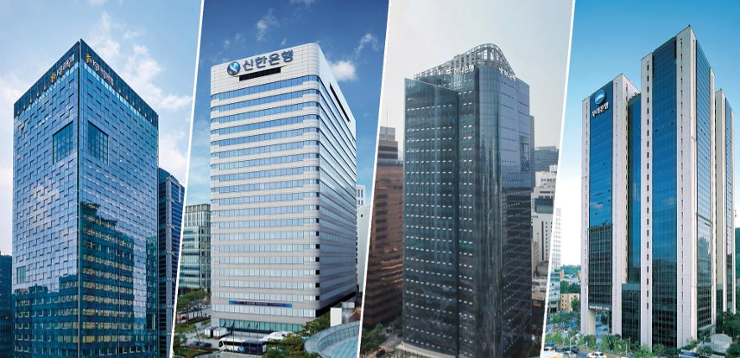In the first half of 2024, the average salary at the holding companies of Korea’s four major financial groups—KB, Shinhan, Hana, and Woori—averaged nearly 100 million won ($73,500). This notable salary level corresponds with a period of exceptional financial performance for these institutions, which collectively achieved record-breaking net profits of 9.35 trillion won. This financial success was largely driven by a significant increase in interest income, reflecting a robust economic environment and effective financial strategies.
KB Financial Group, which is the largest of the four, reported an average salary of 80 million won per employee. Shinhan Financial Group followed with an average salary of 86 million won. Employees at Hana Financial Group, who have an average tenure of 14 years and two months, earned an average salary of 94 million won. Woori Financial Group, despite being the smallest of the four, offered the highest average salary at 97 million won.
Among the subsidiaries, the banking units offered the highest salaries. The average salary for employees across these major banks was 60 million won. Specifically, Hana Bank stood out with an average salary of 67 million won per employee. KB Kookmin Bank and Woori Bank each provided an average salary of 60 million won, while Shinhan Bank’s average salary was slightly lower at 55 million won. This distribution highlights the competitive compensation packages within the banking sector.
The financial groups’ impressive earnings were significantly bolstered by a dramatic increase in net interest income, which exceeded 20 trillion won for the first time in history. This surge in income is primarily due to a rise in mortgage loans, a consequence of the high benchmark interest rate of 3.5%, the highest level seen since December 2008. This increase in interest rates has been pivotal in driving the financial performance of these institutions, as they benefit from the higher margins on loans and other financial products.
Looking forward, these financial groups are committed to enhancing value for both their shareholders and employees. This commitment aligns with the South Korean government’s Corporate Value-up Program, which aims to invigorate the stock market and promote further economic growth. All four financial holding companies are listed on Korea’s benchmark KOSPI index, reflecting their significant impact on the country’s financial and economic landscape.
The high compensation levels and record-breaking profits underscore the strong performance and strategic success of these financial groups in the first half of 2024. The focus on maintaining and increasing value for shareholders and employees is expected to continue as these institutions navigate the evolving economic environment and contribute to the broader financial market’s health.
